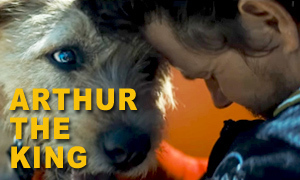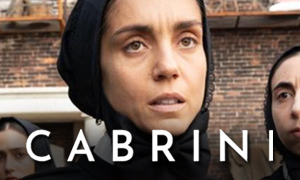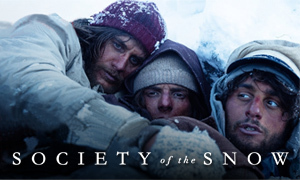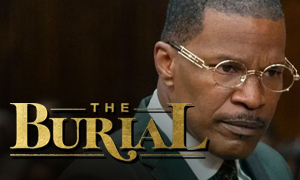A United Kingdom: History vs. Hollywood
| REEL FACE: | REAL FACE: |
David Oyelowo
Born: April 1, 1976 Birthplace: Oxford, England, UK | Seretse Khama
Born: July 1, 1921 Birthplace: Serowe, Bechuanaland Death: July 13, 1980, Gaborone, Botswana (pancreatic cancer) |
Rosamund Pike
Born: January 27, 1979 Birthplace: Hammersmith, London, England, UK | Ruth Williams
Born: December 9, 1923 Birthplace: Blackheath, London, UK Death: May 22, 2002, Gaborone, Botswana (throat cancer) |
Arnold Oceng
Born: November 30, 1985 Birthplace: Uganda | Charles Njonjo
Born: January 23, 1920 Birthplace: Kabete, Nairobi, Kenya |
Laura Carmichael
Born: July 16, 1986 Birthplace: Southampton, UK | Muriel Williams
Birthplace: UK |
Nicholas Lyndhurst
Born: April 20, 1961 Birthplace: Emsworth, Hampshire, England, UK | George Williams
Birthplace: UK |
Anastasia Hille
Born: November 28, 1965 Birthplace: London, England, UK | Dot Williams
Birthplace: UK |
Vusi Kunene
| Tshekedi Khama
Born: September 17, 1905 Birthplace: Serowe, Bechuanaland Death: June 10, 1959, London, England, UK |
Terry Pheto
| Naledi Khama
Born: abt 1925 Birthplace: Serowe, Bechuanaland Death: May 4, 2016 |
Jack Lowden
Born: June 2, 1990 Birthplace: Chelmsford, Essex, England, UK | Tony Benn
Born: April 3, 1925 Birthplace: Marylebone, London, UK Death: March 14, 2014, London, England, UK (chronic lymphatic leukaemia) |
How did Prince Seretse Khama and Ruth Williams meet?
The A United Kingdom true story reveals that Prince Seretse Khama of Botswana (then known as the British Protectorate of Bechuanaland) met English-born Ruth Williams, a white woman, when he was studying law in London in the summer of 1947. Ruth Williams was working as a clerk at Lloyd's of London, an insurance market. They first met in June of that year at a London Missionary Society dance when Ruth's sister Muriel introduced them. At that time in post-war Britain, only 0.02 percent of the people were black. Prejudice was fervent and interracial couples were largely nonexistent. -Telegraph.co.uk
Did Ruth work as an ambulance driver during WWII?
Yes. Ruth Williams was part of the Women's Auxiliary Air Force during WWII and worked as an ambulance driver rescuing pilots at an emergency landing station. -People.com
Was it love at first sight?
No. Fact-checking the A United Kingdom movie reveals that Ruth was hesitant at first, unlike in the film where they feel an almost immediate attraction. They did develop an undeniable connection and shared similar interests, including a love for jazz. They met at a few more dances and eventually Seretse found the courage to ask Ruth to attend a show with him, their first official date. The movie condenses their courtship a little, but they dated for approximately a year before marrying in September 1948. -People.com
Did their relationship really alter the course of history?
Yes. Seretse and Ruth's wish to live together as a married couple in Botswana sparked a decades-long feud between the British Empire and his family. The dispute ended when Botswana (then Bechuanaland) gained its independence from Great Britain. We'll get into the details of that later. -People.com
Did Ruth's father really disapprove of her marrying a black man?
Yes. Like in the United Kingdom movie, the true story confirms that Ruth William's father, George Williams, disowned his daughter, which indeed made things difficult for Ruth. -People.com
Did Ruth's employer lay her off for planning to marry Seretse?
Yes. With the controversy surrounding the engagement spreading, both back in Botswana and in Britain, Lloyd's of London fired Ruth Williams. Her firing is not depicted in the A United Kingdom movie. -Telegraph.co.uk
Did Seretse's uncle really try to block the marriage?
Yes. Seretse's uncle, Tshekedi Khama, who had acted as his guardian and regent ever since Seretse's father died when he was four, immediately attempted to stop the marriage and bring Seretse, the chief-in-waiting, back to Botswana. Not only was he against the interracial union, it was customary in Botswana for the "chief" to marry a woman picked by the tribe, one with royal standing, something that clearly Ruth, a clerk, did not have. -People.com
Is A United Kingdom based on a book?
Did the Bishop of London refuse to give his blessing?
Yes. William Wand, the Bishop of London, would only give his blessing if the government supported the nuptials, which they of course did not. The bishop actually telephoned the priest the morning of the marriage to tell him not to perform the wedding. As a result, the couple decided to have a civil ceremony a few days later, tying the knot on September 29, 1948 at Kensington Register Office. After they were married, they lived in a small London flat for a time. -Telegraph.co.uk
Did Seretse's tribe eventually accept the marriage?
Yes, but their acceptance didn't come easily, mostly due to Seretse's uncle, Tshekedi Khama, who was acting as kgosi (king) at the time and strongly opposed the union. In meetings held in the winter of 1948, Seretse was unsuccessful in his attempt to convince his tribe, the Bamangwato, which was the largest tribe in the country. Finally, he managed to sway their support in June 1949 (the arguments Seretse made at these meetings are condensed somewhat in the film). Even though the movie then shows Seretse's uncle rather defiantly setting up his own village in another part of the country, his uncle actually left Botswana (then Bechuanaland) disgraced, having conceded defeat. Ruth arrived two months later and they were reunited. -People.com
Was Ruth initially not well-accepted in Botswana?
Yes. Ruth and Seretse settled in the town of Serowe. Life was difficult for Ruth at first, as she was rejected by the white colonial community and found it difficult to gain acceptance among the black women. With a population of nearly 300,000 in Serowe at the time, only approximately 2,000 of them were white. Ruth gradually became more accepted among the locals, and by the following year, her popularity had grown, especially among women.
Did Britain really refuse to recognize the union of Seretse and Ruth?
Yes. Despite Seretse's Bangwato tribe in Botswana finally giving their approval and welcoming the pair, the British government forbid the marriage from being recognized in the British colony of South Africa. Britain couldn't risk upsetting Botswana's southern neighbor, which had begun to enforce the early stages of apartheid, the country's legislation that defined racial segregation in the region and included a ban on interracial marriage. Britain needed to preserve a good relationship with South Africa because it relied on the country's gold and uranium. After South African Prime Minister Daniel Malan described the marriage as "nauseating" and South Africa pressured for Seretse to be removed from his chieftainship, there was a fear that South Africa would impose economic sanctions on Botswana (then called Bechuanaland) or even invade the country. To thwart such action, Britain launched an investigation into Seretse's fitness to govern, a strategy to delay his accession to the throne. -People
Are the film's villains, Sir Alastair Canning and his sidekick Rufus Lancaster, based on real people?
No. In researching the A United Kingdom true story, we learned that the villainous civil servant Sir Alastair Canning, portrayed by Jack Davenport, was a fictional character created to represent the face of the British Government. At best, he could be compared to real-life Colonial Secretary Patrick Gordon Walker. Canning's sidekick in the film, district commissioner Rufus Lancaster (Tom Felton), is also fictional. -RadioTimes.com
Was Seretse Khama really exiled from his own country?
Yes. Britain's inquiry into Seretse's fitness to rule was decided in 1950. They tricked him into going to London to meet about his future. Once he arrived, they asked him to relinquish all claims to the chieftainship in exchange for a yearly tax-free stipend of £1,000 (The Guardian). He refused and they exiled him in 1951 from returning to Botswana for five years, citing findings in their report, even though it ultimately concluded he was fit to rule (the report was kept concealed for 30 years). -People.com
He telegrammed his wife Ruth, "Tribe and myself tricked by British government. Am banned from whole protectorate. Love. Seretse." It was apparent that the exile was a tactic to delay his accession and appeal to South Africa's apartheid laws. The movie exaggerates the drama surrounding the exile by including a forced separation between the couple, which didn't happen that way in real life. Seretse went back to Botswana for the birth of their daughter, Jacqueline. Yet, the couple was ultimately forced to leave their home and move back to England. While in England, Ruth gave birth to their first son, Ian, in 1953. -The Guardian
Did the British people agree with the British government's decision to exile Seretse?
Largely, no. In addition to protests in Botswana, the British people expressed anger over the decision and requests were made for Lord Salisbury, the minister responsible, to resign. Seretse thought he might be able to go home when the Conservatives came to power in Britain in 1951, but Winston Churchill instead extended the ban "indefinitely." -Telegraph.co.uk
When were Seretse and Ruth finally allowed to return to Botswana?
The couple was allowed to return six years later in 1956, after the Bamangwato people sent a telegram to Queen Elizabeth II, which read, "The Bamangwato are sad. Over our land there is a great shadow blotting out the sun. Please put an end to our troubles. Send us our real Chief - the man born our Chief - Seretse." The letter worked, but the return didn't come without conditions. Seretse had to first relinquish his claim to the title. He and Ruth returned as private citizens. He tried his hand at civilian life raising cattle but eventually went back into politics. Their two twin sons, Anthony and Tshekedi, were born in 1958. -People
Did Seretse really become prime minister of Botswana?
Yes. Fact-checking the A United Kingdom movie confirms that after founding the Bechuanaland Democratic Party in 1961, Seretse Khama became Bechuanaland's first prime minister in 1965. Along with achieving independence from Britain in 1966, he renamed the country Botswana and became its first democratically elected president that same year. It was at that time that Queen Elizabeth II appointed Seretse Knight Commander of the Most Excellent Order of the British Empire. -People.com
So, is their interracial marriage what led to Botswana's independence from Britain?
In many ways, yes. Seretse was denied his rightful ascension to the throne that had been waiting for him since his father died when he was 3 years old. After being exiled from his homeland for six years, he founded the political party that championed Botswana's independence and was elected the country's first prime minister and then its first democratically elected president. While there were certainly many other reasons that Botswana wanted its independence, Seretse becoming the pivotal champion of that cause might very well not have happened had he and Ruth not been slighted by Britain and he was allowed to become king. In the least, it undoubtedly lit a fire under Seretse and fueled passions in the country. -People.com
Did Botswana change for the better under Seretse Khama's leadership?
Yes. Seretse was a beloved and effective leader, helping Botswana evolve from having a reputation as the third poorest country in Africa to becoming known as a middle-income nation. He did this in part by harnessing the land for its rich minerals and diamonds. He also lowered taxes and put in place safeguards against corruption, something that was plaguing so many other African nations. He won consecutive elections in the 1970s but was diagnosed with pancreatic cancer in 1980 and died of the disease that same year at age 59. Ruth remained in Botswana and passed away 22 years later in 2002 at age 78. Seretse's son, Ian Khama, was elected President of Botswana in 2009. -People.com
Do Ruth and Seretse's descendants think the film is accurate?
Yes. Ruth and Seretse's daughter Jacqueline's only criticism was that her father was less emotional in real life vs. the way he is depicted in A United Kingdom. Largely, the family was happy with the movie and its attempt to adhere to the true story. -Telegraph.co.uk
Is actor David Oyelowo married to a white woman in real life?
Yes. David Oyelowo, who portrays Seretse Khama in the movie, is married to Jessica Oyelowo (born Jessica Watson), a British actress. The pair married in 1998 and have four children together. Jessica sometimes even appears in her husband's films. She portrayed the fictional Lady Lilly Canning in A United Kingdom and starred as Meredith MacKenzie in Captive. Both David and Jessica are committed Christians, and David said that he often prays for guidance on which roles to take.
Were any other movies made about Ruth and Seretse Khama?
Yes. The 1990 movie A Marriage of Inconvenience, based on Michael Dutfield's book of the same name, was made about the couple.
Seretse Khama Documentary & Related Videos
Dive deeper into the true story behind A United Kingdom by watching the documentary below.
Link-to-Learn More:







